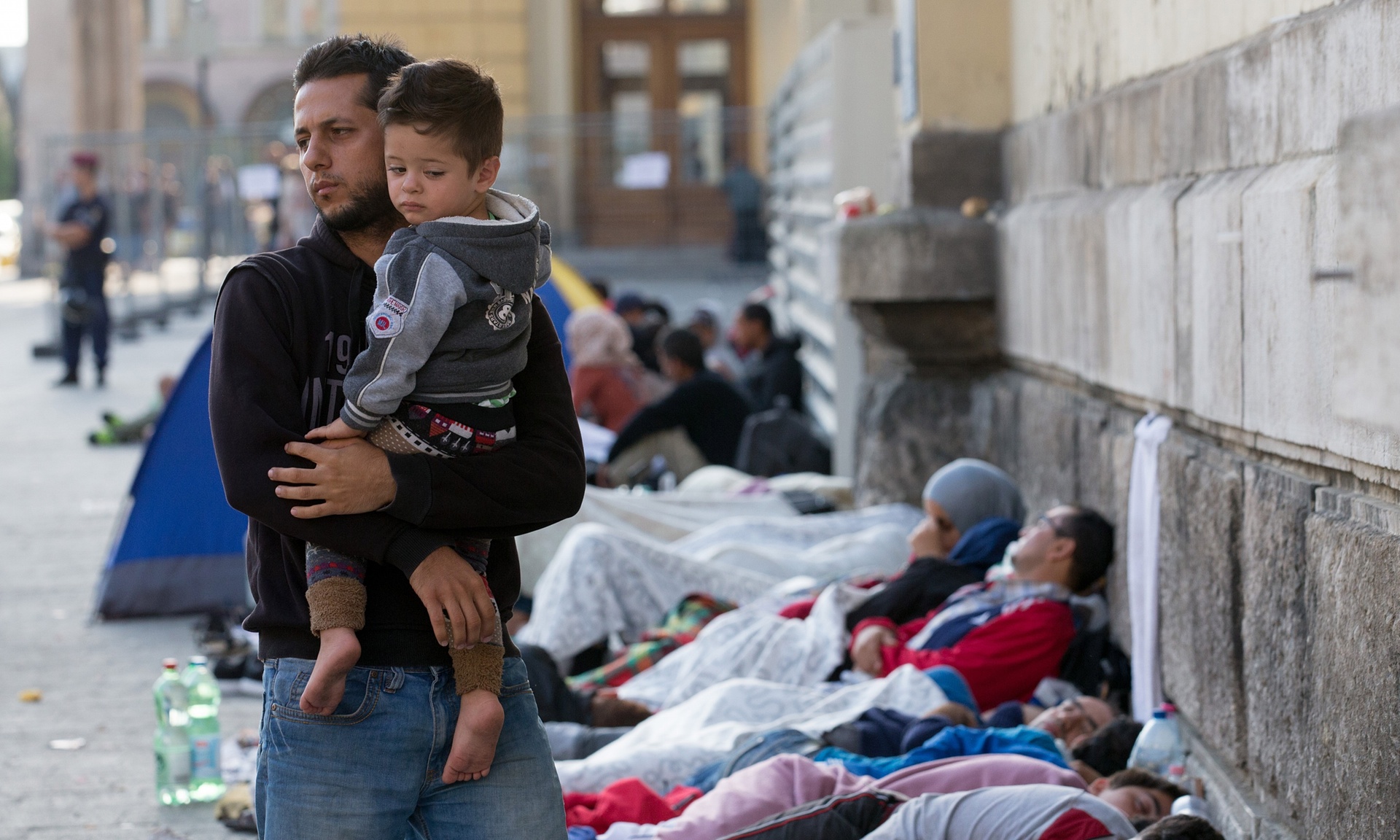Christian politicians won’t say it, but the Bible is clear: let the refugees in, every last one

Thousands more, says David Cameron now, grudgingly conceding to popular pressure. But why not all of them? Surely that’s the biblical answer to the “how many can we take?” question. Every single last one. Let’s dig up the greenbelt, create new cities, turn our Downton Abbeys into flats and church halls into temporary dormitories, and reclaim all those empty penthouses being used as nothing more than investment vehicles. Yes, it may change the character of this country. Or maybe it won’t require anything like such drastic action – who knows? But let’s do whatever it takes to open the door of welcome. “Keep, ancient lands, your storied pomp! Give me your tired, your poor, Your huddled masses yearning to breathe free, The wretched refuse of your teeming shore. Send these, the homeless, tempest-tost to me, I lift my lamp beside the golden door!” And yes, when Emma Lazarus wrote these words – later inscribed on the Statue of Liberty – by “storied pomp”, she meant us Brits.
For years our politicians have piggy-backed upon Christian morality for electoral advantage. We should “feel proud that this is a Christian country”, said Cameron earlier this year (pre-election, of course), in what some might uncharitably see as a call to maintain a Muslim-free view from his Cotswold village. But there is no respectable Christian argument for fortress Europe, surrounded by a new iron curtain of razor wire to keep poor, dark-skinned people out. Indeed, the moral framework that our prime minister so frequently references – and to which he claims some sort of vague allegiance – is crystal clear about the absolute priority of our obligation to refugees. For the moral imagination of the Hebrew scriptures was determined by a battered refugee people, fleeing political oppression in north Africa, and seeking a new life for themselves safe from violence and poverty. Time and again, the books of the Hebrew scriptures remind its readers not to forget that they too were once in this situation and their ethics must be structured around practical help driven by fellow-feeling.
The Passover, first celebrated as a last-minute preparation before leaving Egypt (unleavened bread as there wasn’t time for it to rise) – and the Christian Eucharist that was built on top of it – is nothing less than a call to re-live this basic human solidarity in the face of existential fear and uncertainty. And when the author of Matthew’s gospel describes Jesus as a child refugee, fleeing his country from a despotic ruler intent on taking his life – Herod not Assad – he is deliberately sampling that basic foundational myth of the Exodus.

If our “Christian” politicians have any excuse, it is that the church has itself been frequently woeful in its response to the current situation. And the prize for the most outrageous church pronouncement on this issue surely goes to Péter Erdő, the Roman Catholic archbishop of Budapest, who reportedly declared that Hungarian churches were prohibited from sheltering refugees. “If we did so, we would be human traffickers,” he said. I hope the Holy Father has a quiet word with him. But little wonder that the only thing Hungary’s prime minister, Viktor Orbán, can say about the refugees fleeing war in the Middle East – as he tries to corral them in camps – is that they threaten the Christian identity of Europe. The truth is entirely the opposite: it is he that threatens the Christian identity of Europe. “What is the point of salt if it has lost its saltiness?” asks Jesus. Saltless salt “is no longer good for anything, except to be thrown out and trampled underfoot”. And that is what should happen to Orbán’s so-called Christianity.
Kudos, then, to Justin Welby, quoting from Leviticus. We must “break down barriers, to welcome the stranger and love them as ourselves”, he said. No, that’s not lefty hand-wringing. It’s biblical faith. And while one cannot read off the specifics of immigration policy from an ancient text, there is little argument what the underlying principles must be. And – listen up Donald Trump, who has been cluelessly invoking his love of the Bible over the last few weeks – if our politicians don’t like the basic principles, then they shouldn’t claim the Christian mantle in the first place.
First Published Here: The Guardian
